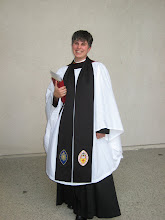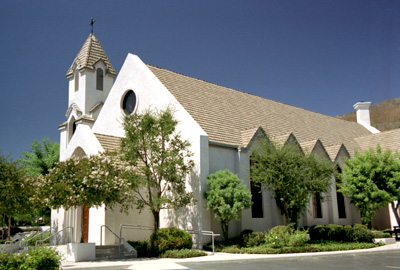For so many years the spirituality part (prayer, meditation, study) of the Christian faith has been relegated to a few, like the monastics, and the religion part (dogma and doctrine, church buildings and church polity) while available to all has been devoid of the richness that a life of faith can offer. In the past 30 or so years, seekers have discovered a rich tradition of prayer that can be incorporated into a regular spiritual practice. This tradition of prayer moves beyond vocal prayers of petition and intercession (such as, "Dear God, please make my sister well," etc.) and includes divine reading of scripture, Christian meditation, contemplation, etc. The depths to plumb are endless and the growth for the practitioner is marked.
This past week at Epiphany, we began a two-session class that examines different types of spiritual practices that have long been part of our faith tradition. Below is a bit about of what we discussed in our first session.
In theology there are two different "ways" of speaking about God. Via Positiva, or the Positive Way, speaks about God by naming who God is. For example, a favorite song of mine is "God is a girl." That song title is Via Positiva. Our prayers that we used on Sunday are also Via Positiva. We always name God as something - almighty, everliving, holy, gracious, etc.
The flip side of Via Positiva is Via Negativa or the Negative Way. Before I say more, let me clarify that Positive and Negative here aren't qualitative judgments. Think more of these concepts as artistic ideas. Let's say we look at a painting of two birds in flight. The image of the birds is positive space - it is something. The space between the birds that lets us see the birds in the first place, is negative space. It is absence. If there were no negative space in art it would be impossible to see the objects that are painted. The same is true of words on a page. Each letter that I type has its own blank space within it and around it that make it possible for you to read what I write. This is negative space.
The same idea is true for what we say about God. We may say, on the one hand, that God is eternal, but we may at other times say that God is unknowable. This is Via Negativa - to talk about what God is not.
The two "Ways" can be understood in terms of spiritual practice as well. Vocal prayer, chanting, singing, corporate worship, and other individual disciplines like praying with icons, the rosary, praying the daily office aka the divine hours (daily prayer at a set of fixed times each day) are all practices of Via Positiva. In Via Positiva we offer our praise to God, our concerns, and hopes, and whatever else we want to bring before God.
Silence, contemplation, centering prayer, meditation, and even the pauses in between prayers and readings in our Sunday liturgy can be understood as Via Negativa. Or, more simply put, rather than our talking to God, Via Negativa slows downs and quiets in order that God might speak with us and that we might just BE with God.
Next week the focus of our class will be experiencing these different ways in practice and not just in theory. And, in the coming days, we will post more on specific types of practices, as well as web and written resources coming soon. Stay tuned!








